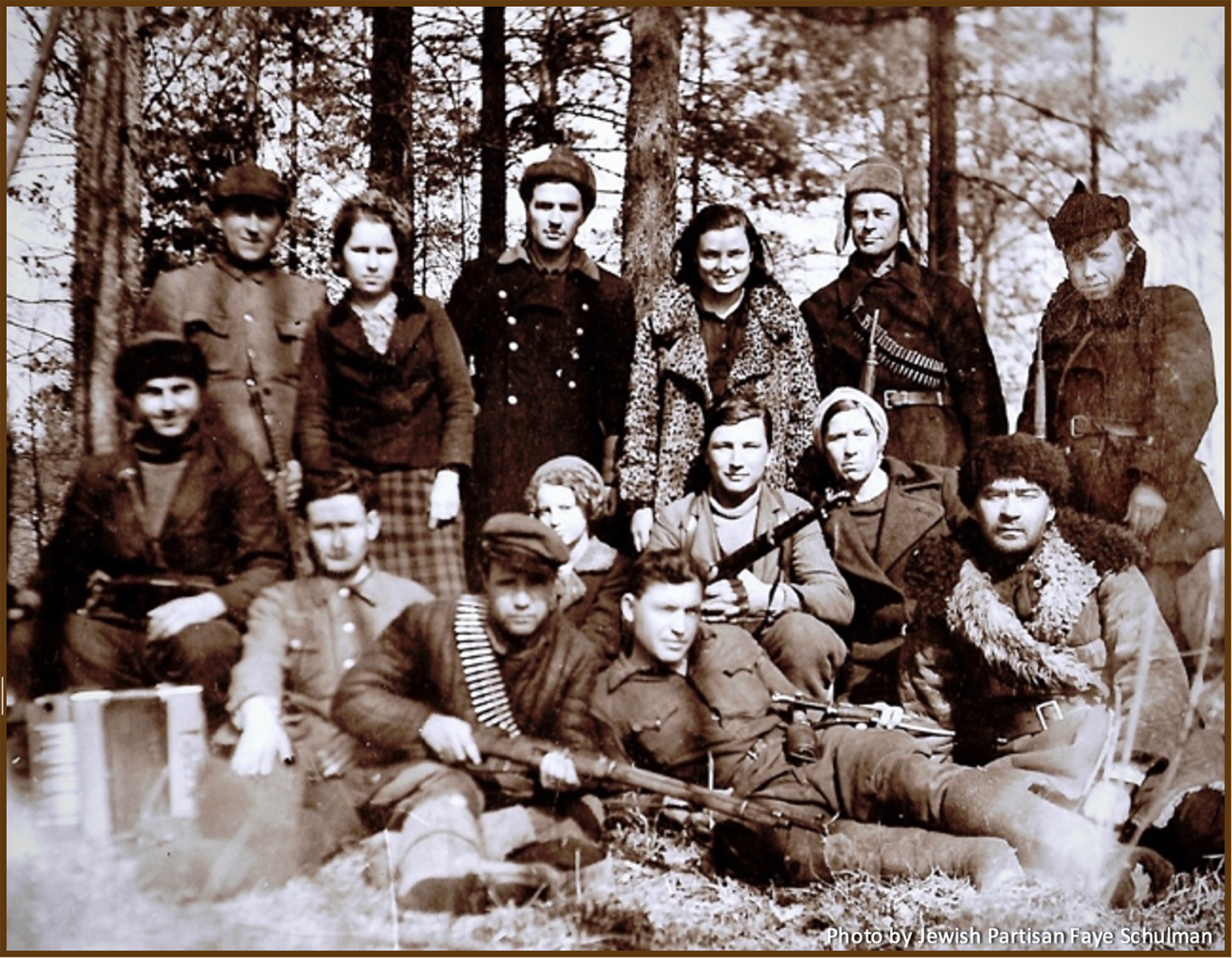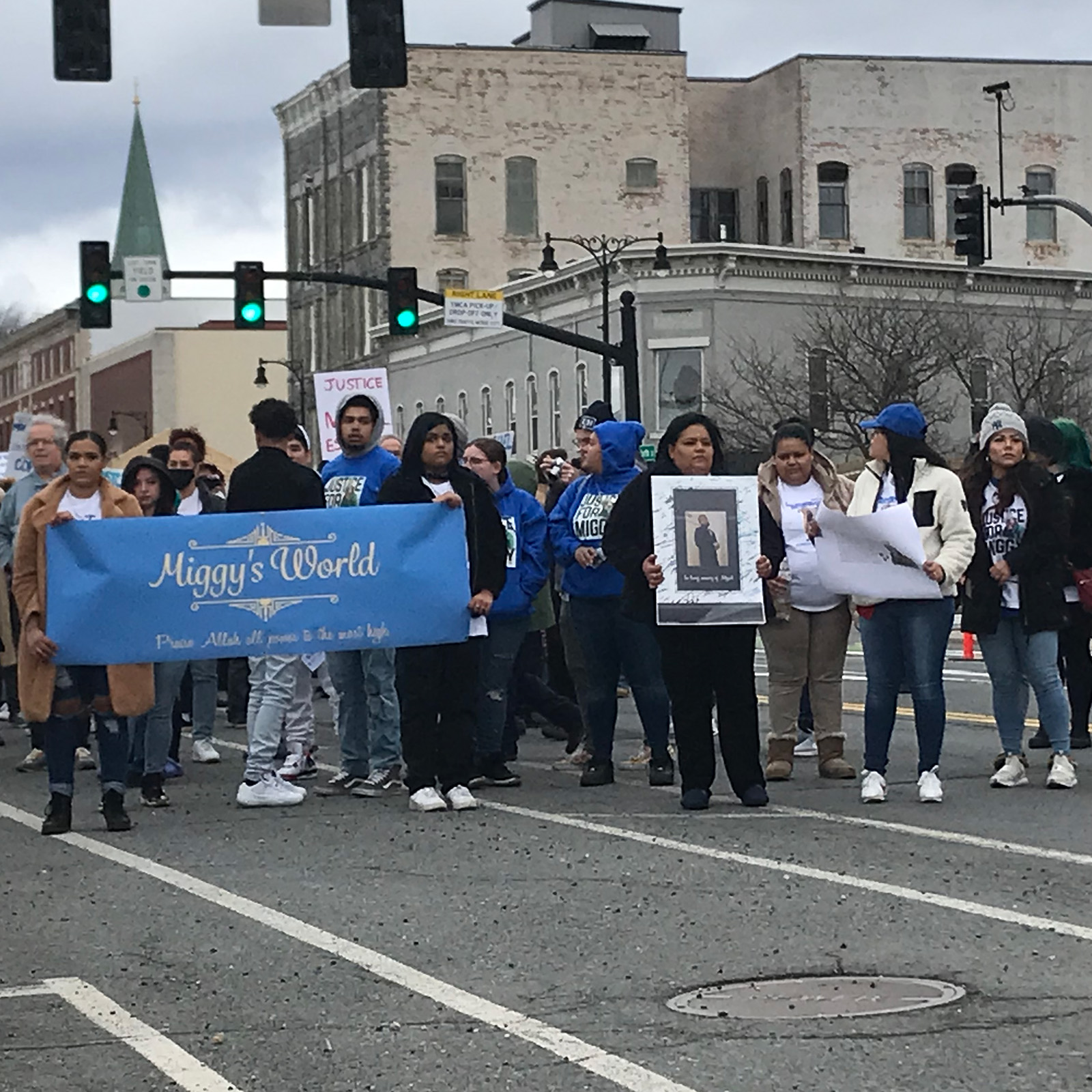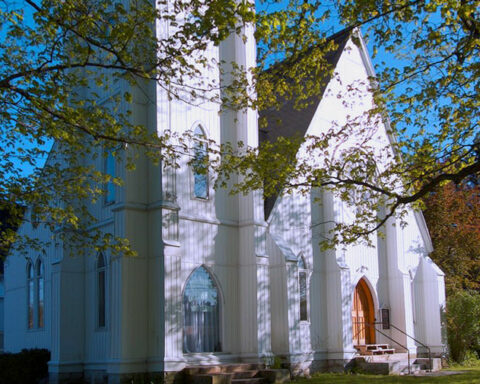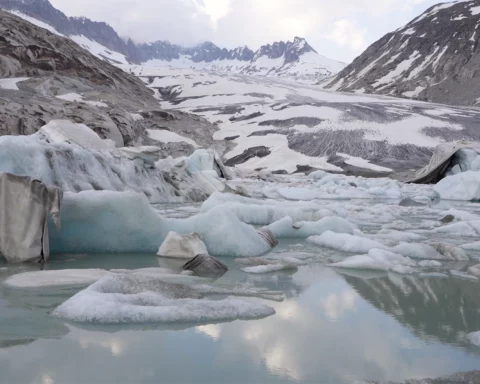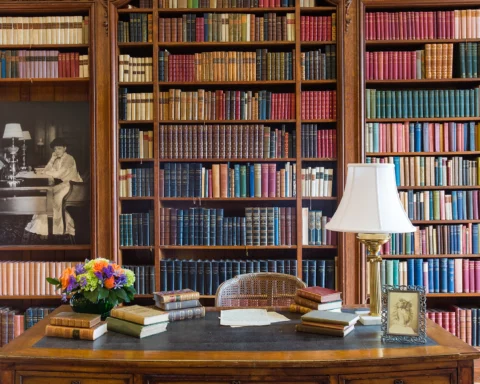Podcast (will-call): Play in new window | Download
Subscribe: RSS
From the film’s officially released information:
GREAT BARRINGTON, Mass — The Berkshire International Film Festival and New Moon Films announce the New England premiere of the award-winning Four Winters: A Story of Jewish Partisan Resistance & Bravery During WWII. The film is a recipient of Steven Spielberg’s Jewish Story Partners Grant and was awarded “Best Documentary” at the Toronto Jewish Film Festival 2022
Berkshire resident and 97-year-old WWII partisan Michael Stoll, whose powerful story is featured in the film, will be in attendance for a post-screening conversation with the film’s director, Julia Mintz. BIFF will present the film one-night only on Tuesday, August 2nd at the Mahaiwe Theatre in Great Barrington at 4:00 p.m.
“A MUST-SEE HOLOCAUST MOVIE (NO, REALLY) … ‘FOUR WINTERS’ is a documentary with suspense, humor, and zero sentimentality… It’s surprising, moving, horrifying …and sometimes shockingly funny.”
– Marjorie Ingall, Tablet Magazine
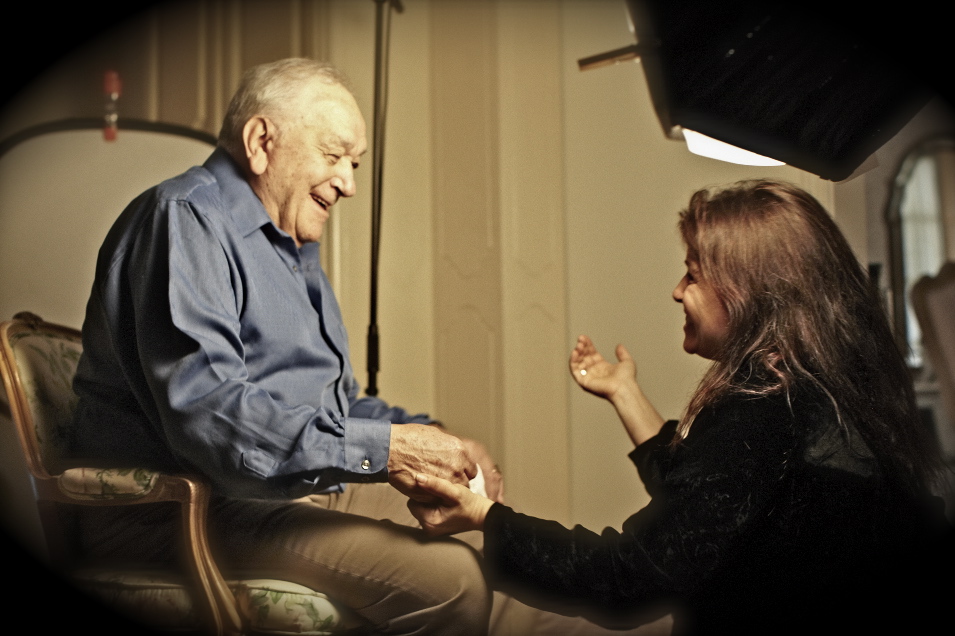
Despite extraordinary odds, over 25,000 Jewish partisans courageously fought back against the Nazis and their collaborators from deep within the forests of WWII’s Belarus, Ukraine and Eastern Europe. Torn from their families by the ravages of Hitler’s armies, men and women, many barely in their teens, escaped into the forests, banding together in partisan brigades; engaging in treacherous acts of sabotage, blowing up trains, burning electric stations, and attacking armed enemy headquarters. Shattering the myth of Jewish passivity, the last surviving partisans tell their stories of resistance in FOUR WINTERS, revealing a stunning and inspiring narrative of heroism and resilience.
Tickets: $18
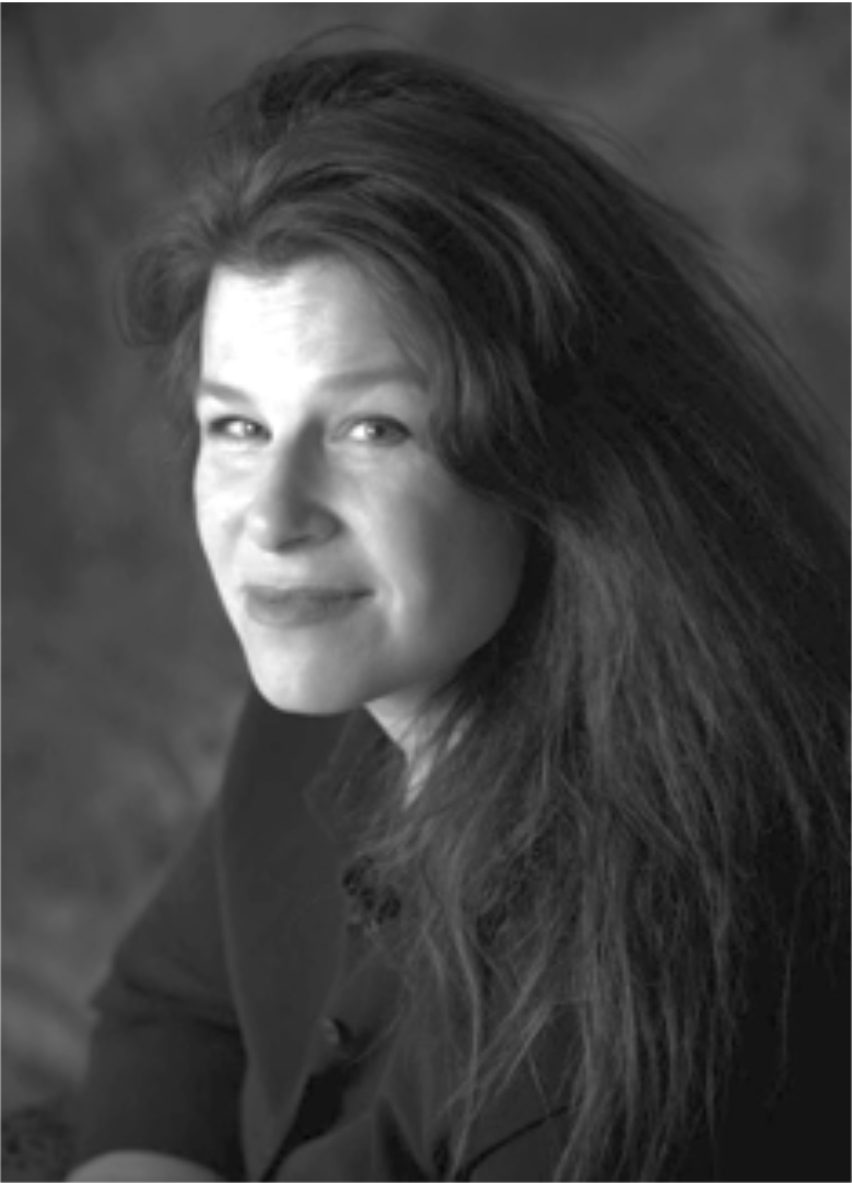
BIO — Julia Mintz
Julia Mintz is a writer, producer and director of documentary films, whose work focuses on inspiring narratives that reflect on soulful bravery and resistance against unimaginable odds. She has been on the producing team for films shortlisted for the Academy Awards, premiered at Cannes, Sundance and TriBeCa, and won Emmy, Peabody and festival awards. Her films can be seen on HBO, PBS, American Masters, NETFLIX, Amazon, and are shown on college and university campuses across the country. Julia has worked on many of the country’s most celebrated documentary films.
Recent projects include Mr. SOUL!, premiered at TriBeCa and short-listed for an Academy Award®; Joe Papp in Five Acts, premiered at TriBeCa for PBS, and Get Me Roger Stone, premiered at TriBeCa, NETFLIX. Mintz produced the Emmy-nominated California State of Mind, PBS and post-produced Soundtrack for a Revolution, short-listed for an Academy Award® Best Documentary, premiered at CANNES, nominated for Writers Guild, HBO; Nanking, short-listed for Academy Award®, winner of Peabody®, Emmy®, and Editorial Award at Sundance; and Love Free or Die: Story of Bishop Gene Robinson, winner Sundance Jurors Choice.
Additional projects include Equity, nominated for the Grand Jury Prize at Sundance, winner of the Women’s Image Network Award; A Son’s Sacrifice, winner IDA 2007 Short Documentary Film Award; The Killer Within, nominated for an Emmy® award; Muscle Shoals, Sundance; Bing Crosby Rediscovered, American Masters; Life and Times of Frida Kahlo, Emmy® nominee; Billy Strayhorn: Lush Life, Emmy® Award Best Documentary; Larry Kramer in Love and Anger, Emmy® nominee; reality TV series Broadway or Bust; and Cyndi Lauper: Still So Unusual. Julia has also produced programming for Discovery, NASA, National Geographic, NHK and SONY. Mintz’s feature documentary, FOUR WINTERS, premiered to sell-out crowds at Lincoln Centre in January 2020 and is slated for theatrical release in Fall 2022, with negotiations well underway for festival, special venue and academic screenings all over the world.
An award-winning artist, Mintz is an accomplished multi-grant recipient for her work in film and visual arts. She has taught seminars on filmmaking and digital post-production at numerous workshops worldwide, including Santa Fe Cinematographers Workshops, the International Film and Television Workshops in Camden, Maine, The SONY HD Film Production Workshops in Toronto, and Film Arts in Hong Kong, where Mintz was featured as the keynote speaker for the Trade and Development Council, and Film Arts International Seminar in China. Mintz has been a guest lecturer at Amherst College, the Trinity School, and held an adjunct faculty position at Long Island University in NYC.
There are only so many ways to say it — a “free and independent press” is NOT free. Not only do we have to pay for web hosting and technology costs of all kinds, the simple fact is, the Greylock Glass is basically a six- or seven–person operation with one employee. And that employee has bills to pay like everyone else: housing, food, loans. We can’t survive much longer unless more of the people who enjoy our work pay it forward.
Please visit our “Support Us“ page to become a member or make a one-time contribution.
Thanks.
Jay Velázquez
Editor-in-Chief (and everything else), The Greylock Glass
NTRVW: Filmmaker Julia Mintz — Four Winters
Editor’s Note: The Greylock Glass pays to have rough transcripts of interviews produced. We attempt to remain as faithful as possible to the speakers’ original meaning, and apologize for any errors of transcription. That said, even the imperfect transcription we perform is costly. Please support us financially by becoming a member or making a one-time contribution to help us continue to provide this service.
Will Call: Julia, thanks so much for coming in call.
Julia Mintz: Thank you. It’s great to be here.
Will Call: Yes. So we have we have this unique opportunity through your work to find out about something that is well was unknown completely to me until this until this showed up in my inbox. Why don’t you tell us what is for Winters?
Julia Mintz: For Winters is a documentary film about the armed Jewish resistance during World War Two. And it’s the story of these young people who miraculously escaped Nazi clutches and the all the atrocities that were happening or were in one way or another got themselves into the forest. And once there formed these partisan brigades, which were these unique kind of militias, where they rose up and they fought back and they resisted the Nazis and their collaborators during the war.
Will Call: Hmm. Now, partisan, when we say partisan, what do we mean by the term Jewish partisan?
Julia Mintz: A partisan is really a soldier. That is, it’s like a member of an armed group that fights secretly. And the definition, I think, and Wikipedia is like they formed and fight secretly against an occupying source. So it’s one who fights against enemy occupied. So but they are not sort of with a country. Right, because it’s an occupation, it’s an occupied country. So during the World War two, especially in Eastern Europe, there were the Jewish partisans, there were the Soviet partisans, there were the the Russian partisans, most of the Russian partisans, you know, they were sort of left behind the enemy lines to hold back or they escaped capture from the Nazis. And we’re in the forests, and these groups from these bases formed all sorts of ways to resist. And in the Jewish partisans case, a huge part of that resistance was survival and the acquisition of arms and the acquisition of food, and then actually the active sabotage against the Nazi and Hitler’s armies and what they were up to, which also included going back to the ghetto time and again and bringing out those that were able to escape into the woods and join the partisan brigades or to join family camps that were in the forests.
Will Call: Gotcha. Now, this this bit of history that you’re going to be presenting at the Mahaiwe is. It is a direct renunciation of this myth, this this misunderstanding of the Jewish role during World War Two. There is this sort of idea of Jewish passivity that they just allowed these horrors to happen to them. But this this film is going to show us that that’s that’s not at all the case.
Julia Mintz: Yeah. I think that what people will end up experiencing at the movie theater on the second, which I’m super excited about, Tuesday at 4 p.m., not only will they be able to see the film, that begins to unravel the myth of Jewish passivity. But you’ll also have an opportunity to meet Michael Stoll, who was one of the last living partisans, who is also featured in our film, who’s a local in your community. And he’s going to be with us for Talkback, too, which is going to be fabulous. And, you know, through Michael’s story that’s featured in the film and through the other partisans, what we really get to see is it’s that we get to see history through their lens, through the portal of what they experienced. And I think that for so many of us, we inherit history from the the militaries, especially World War Two history. We inherit the history from what the Nazis meticulously recorded of their atrocities against humanity. We inherit the history from the liberating armies and military of the United States. Right, the liberation of Auschwitz and things like this. But what we haven’t historically had the opportunity to do until recent times, most recent times like we’re seeing today in the Ukraine is sort of a personable experience. But we didn’t really get that when we learned about the Holocaust, or at least my generation, people that didn’t grow up in this moment in time.
Julia Mintz: We know the stories that we heard were through that lens. And so because of that, that’s how the cameras were focused. That’s how the stories were focused. So we not to say that we didn’t have the records of the Shoah, we did thanks to Steven Spielberg and this incredible archive and all of the efforts of the survivors. But with that said, the over arching documentation, the physical elements of proof that we were we’ve seen over our lifetimes has very much been from the perspective of those other cameras. So what we have an opportunity to do in four winters is we really turn the lens and we hear from the voice of resistance. So a lot of the time we see people at the train stations and they’re moving toward the trains. And what looks like passivity after learning so deeply about that is actually. These people were, but they had a belief in humanity. There was no possible understanding of what lies before them. And so they believed that if they kept their head down and did what they were told, that they would survive this and they were protecting each other because the moment one person stepped out of line, 1015 were murdered right there in the spot, including the most innocent and children.
Will Call: Right.
Julia Mintz: And so what we perceive as passivity because of the way the cameras are focused, was actually an effort to save each other’s lives over and over and over again. And so this is an interesting shift and a deeper understanding of what we see. You know, so it’s just a good reminder of what the camera focuses on. And what we don’t see is often what’s driving the narrative of a moment. And yes, the atrocities were tremendous. But I think that the the persistent myth of passivity is so much more complex than that. I think it was a belief in humanity and love and the family bond that we were actually witnessing.
Will Call: And the the notion that the worst possible imaginable things could not really be happening. I mean, they just couldn’t really be happening. I think that there must have been something. Well, first of all, I should say that I really appreciate that you’re that you’re uncovering this because I have always as a as a sort of armchair student of history, I’ve always wanted to know. But what were the other people doing? You know what exactly besides the generals, you know, this great man view of history, which has been you know, most of us grew up with this great man view. And I’ve always wondered, but what about the other people? You know, what about the peasants? What about the the the workers? What about the people out on the fringes? And these certainly people both figuratively and literally on the fringes. Give us a sense of how they and end of the movie is going to explain much of this. But give us a sense of how they got from the urban areas into the forests. And, you know, I’m going to ask you to talk about the documentation, but the photos that they took of themselves do not suggest that they were necessarily born to be forest dwellers.
Julia Mintz: Absolutely. Absolutely. I want to just circle back for one more moment and then go forward to what you just asked. One of the things that really helped me understand what I was seeing, too, when I began the deeper dive and research into this new portal was there’s a scholar named David Angle, NYU professor. And one of the things that he had written that really stuck with me is that he had said that for over 1000 years, right? Well over 1000 years. There was so many times where populations and minorities, especially Jewish people at that time, were being displaced and and had the experience of pogroms. And you have to move and you have to do this and you have to do that. And usually a few people would get killed. But if they kind of did nice, they played nice, right? That they would survive and relocate and start again. And this was something that historically was understood. So one of the crises was that people often like we do today, you know, there’s a looking back to understand how to proceed, to move forward. And because of that, I think they were sort of informed by a level of humanity. That was shockingly delusional. I don’t think anybody, any possible person had any concept, and I still don’t after studying this for a decade, I still don’t conceptually in my guts understand how other human beings could do this at this level to one another. So I think that we have to remember that like hindsight, yeah, we can see it. But in those moments of time, this was inconceivable. So and I think that’s really important in terms of like perceiving passivity because we know what they were walking toward. But there was no way, in no way any human being at the time could have understood what they were walking toward.
Will Call: Especially especially the Jewish people had a long experience of being displaced. I mean.
Julia Mintz: Yes, and don’t forget, here’s one. Germany was good to relatively speaking. Germany was not an enemy.
Will Call: Right. Well, that’s very civilized. I have I have some I have some relatives. Great, great aunt. Great, great, great aunt. I guess who due to the fact that she and her sister left your left Russia when they did in 1912 or 1913 or something, it’s pretty, pretty probable that she was fleeing the czar at the time. And and it was just, again, one of those forced relocations or relocations just to survive. And they figured, well, okay, here we go again. And probably I can understand that this is the first time that I’m able to understand it. And I thank you for this that yeah, they probably figured, well, here we go again and let’s all just sort of keep our heads down. And most of us will get through this and we’ll figure out something on the other side not realizing.
Julia Mintz: I mean, if you think about World War One, which wasn’t that far behind, right. The there was 100,000 German Jewish people in the military who served in the German army during World War One. Of whom 12,000, I believe, were killed in action, 100,000 German Jews. You know, so and this was World War One, so it wasn’t that far away. I mean, the adults, right? I mean, I don’t know. I’m not fabulously familiar with all the statistics of World War One. But, you know, you’re talking 19, what, 1560 something in there. I mean, and now we’re 1940. This is not so far away. This is deep impregnated into these folks memory. So I think it’s just really important to try and get a little bit behind what was informing what we saw. And anyway, I think now to move forward to what you were saying before, let’s jump forward to these escapes into the woods. I mean, these were mad dashes with the clothes on their back and, you know, through tunnels, over fences, hiding in backyards, impersonating other people. It was with whatever they could possibly grab and flee with, especially in the beginning. And so these journeys would take days and days and walking and hiding and sleeping during the day and walking at night and under all sorts of circumstances. And it was in the winter and there was feet, several feet of snow. I mean, this was. This to. Was. You know, Dudley, to say the.
Will Call: Least.
Julia Mintz: This was Dudley, too. So I think that. There was no good choice. And I think that these innocent people. Who? I don’t want to give away too much in terms of what they were like. Had to really. Transform and become something very different. In the flash of an eye after being orphaned, most of them completely witnessing such atrocities to. Sort of manifest the courage, the resiliency and the self determination to. Due to want to live and to find their way to doing everything they could to protect their own lives and the lives of others and a future for a people. Shalom Eran, who is one of the most significant influences in my inspiration to tell this story and to understand it. He is a friend and Shalom had a quote and he said, No person should succumb to brutality without putting up resistance. Individually, it can save one’s life and in mass, it can change the course of history. And in this way, you know, these people, these innocents are just again, sadly but truthfully, they represent all of those people past, present, and unfortunately. You know, as we see today again and again, those that have to rise up to defend their lives and their people and a future.
Julia Mintz: And that’s why I really made the film. I wanted everybody to sort of connect the dots. I mean, I was horrified to see last week in Tampa, Nazi flags flying and people marching with the caricatures of Jewish people on big signs. I mean, there’s there was a mural that was in Toronto with stereotypes of a Jewish guy, and it was awful. I mean, they ended up taking the mural down, but this was a huge mural, you know, and the side of a building that had gone through and been approved, you know, like this is this is these are dangerous times when these things start to manifest. And I think that each of us needs to stand up for ourselves, for our people, whoever our people are, and for each other. And I hope that this film is a deep inspiration and. Unfortunately, I think we really need that. We need that call to action to not tolerate bystander behavior in ourselves and in each other.
Will Call: And we can’t be apathetic. Toward these very obviously intentional, willful.
Julia Mintz: It’s just bigotry and hate. It’s not a new human condition. But what we have to do is we have to also find our own strength, our own voice, our own resiliency, and recognize that within each of us, we do have the power to make change. I’ve I’ve spent my career, which I’m starting to feel like I’ve been doing this a little while, you know, as an art activist, being part of really fantastic films that tell stories about resistance and creativity and artists, whether it’s, you know, music or gay rights, and Gene Robinson, the first out Bishop and all of Christendom and Joe Papp, which we just had our premiere at on American Masters, you know, just breaking boundaries with performance and art and putting African-American people and white people on the stage together performing Shakespeare. And we have always looked up to those who stretch and create new ways for us to understand our world. And we also, you know, often when we look back on history, it’s those that stepped outside the box and showed us something new and different. And they resisted they resisted a system. They resisted the norm. And so this is a good thing. You know, this is this is a good quality in our human nature. And I think that it’s my hope that in many ways we all find our voice and that the film inspires that.
Will Call: Well, the The Greylock Glass was started with that same sort of spunk and intent in mind. The idea that there has to be I think there has to be resistance. There has to be at least an infrastructure in place so that resistance can happen if and when it’s needed, because you never know when it’s going to be needed. As you said, only 20 years before, Germany was a reasonably welcoming place for Jews. I worry because sometimes it was 2006. The FBI came up with a study that said, We’ve got a real problem. We have a massive amount of white nationalists and neo-Nazis in the armies and our army or armed services and in the police forces across the country. Really, nothing was done. I mean, great. They had a study. They have a problem. And only recently did somebody say, you know, we should probably go back and look at this and see if we can’t do something to limit the number of neo-Nazis and white nationalists and the other police forces across the country. And I’m shocked and appalled because the way they phrase it, it’s as if we’re just always going to have they’re always going to be there.
Will Call: You know, we’re just going to have to sort of learn to live with the fact that there’s always going to be this neo-Nazi element within law enforcement, security, intelligence communities. And to me, that’s that’s a terrifying thing, because that means that at every and at every level in every state and every town, there’s the potential for for that hatred to grow. And that’s what that’s what terrifies me. And I’m glad that a film like this can show that in this case, mostly mostly young people, for probably reasons of physical fitness and endurance, were the ones who did this and the ones who, I’m guessing, were young enough not to. Not to have the wool growing over their brains, thinking that there was a chance of of getting out of out of the Holocaust alive unless they did something. Do you think that there is a. That there’s an appetite in this country to really dig into the problem of white nationalism and neo-Nazi ism.
Julia Mintz: Well, I can speak to my own appetite of wanting to build bridges and. And I think that by understanding each other’s stories and by empowering people that don’t feel empowered. By helping. Each of us to understand that we can. Create some balance by finding our own voice and our own strength and our own way to participate in. Making the world a better place. I think that that’s a really important step in terms of what we face. You know. It’s, you know, people. Can come together and we can change the course of history. We know this if we commit to it. And I think that those of us that want to be activists want to. Come together as a voice against. Nazism, neo-Nazism, supremacist ideology. This kind of hate and bigotry that we. Don’t want to feed. I think the best way to. Starve. This. I don’t know, this sort of growing piece of our country, which is very sad to me and growing in the world is to grow. To grow. To grow the goodness. I mean, I think that there has to be a level of activism that you’re speaking about on a deeper level politically and on a governmental level. But I think that I need to leave that to the folks that really understand how and what that would entail would entail. But as an art activist, as a documentarian, as a filmmaker, I do believe that this film speaks to the true and real dangers of what we’re seeing. And I think for people to understand that what we are seeing is truly a threat, truly in its roots and its ideology is deeply dangerous to our country, to our democracy. It is my hope that we can look back and understand what the worst scenario we’ve known could be. But we can also recognize that there could be a future that if we are not adamantly and consciously being a part of creating. That we could lose control over the.
Will Call: There’s no question that this. You don’t have to do anything else except the work that you do as a as an artist, as a documentarian. And that is powerful activism right there. So I certainly would.
Julia Mintz: But with that said, sorry. But I do want to say, with that said, you know, as artists, as activists, as documentarians, we do need help. You know, we need help from the communities that are out there to take the initiative, to see our work, to support our work, and to take the initiative to help us show our work and get it out into the world in every way possible. I mean, being on your show is really important. I mean, you’re giving us me the partisans an opportunity to speak to another audience that otherwise we wouldn’t have the opportunity to speak to. So thank you. Thank you for taking your time and finding us and asking me to join with you today. And thank you to all your listeners for coming out and giving this a listen. I mean, this is a huge part of it, right? I mean, just to engage in the conversation and to learn about it and to help spread the word, you know, is really important. I mean, people need to have an opportunity to see these kinds of films and to engage in this content. And I think what’s so wonderful about our film is that it’s told only, only no voiceover, no narration.
Julia Mintz: The whole thing is just the partisans themselves. They are telling the audience, they are telling you, the viewer, what happened to them. And I got to share this little story. One of the best things that happened, we premiered the film at Lincoln Center. And as we were in the hallway and people were coming out, one woman kind of grabbed me by the arm and she was like, I just want to tell you, that was that was like a movie. And I laughed, you know, and she said, it was wonderful. I forgot I was watching a documentary. I was like a movie. And then she said to her friend, Wasn’t that like a movie? And they were like, Yes, it was like a movie. And, you know, that resonated with me. And I keep thinking about that because I was so happy that she recognized that these were the people, these were the real people, these were the characters of this history and that their story was real. It was them. And so even though I know what she meant, I think what what the feeling was right. I think it’s Maya Angelou. I can’t remember who says it, but people don’t remember what you say.
Julia Mintz: They remember how you make them feel. And so I felt like, oh, good. She felt connected. She felt emotionally connected. She didn’t feel like she was watching a didactic kind of film. I mean, I think the film really I think one of the quotes that was said about the film is shockingly funny at times. Only at times I will say, you know, stirring and an exciting, engaging, you know, because it’s really them. They are stirring and exciting and engaging and fascinating. And and I’m really glad at the end of the day, you know, that we crafted the film solely through their voices because, you know, for the next decades, years and years, we’ll have an opportunity for the scholarship to continue to inform. But this was and is has proven to be the final opportunity that our partisans in the film got to tell their story. Michael, as I said, I believe is I feel very honored as one of the last living partisans who can share with us on this really special, special, special. Once in a lifetime screening, it feels like a ticket to a miracle that we’re having the chance to be a part of on August 2nd.
Will Call: Right. Well, I’ll tell you, there is. There is going to be a buyer. Your bio in the show notes to this to this episode. I always have fairly extensive show notes. And because you provided such great copy about this, this documentary and the various people involved, there’s plenty for people to to produce. You have a. You have a such a long list of credits to your name. It would be probably embarrassing to hear all of the great things that you’ve done. If there isn’t an award that you haven’t either nominated for or won. I can’t think of it because you’ve just been. Everywhere, all over the world. You’ve been on PBS, you’ve got Netflix under your belt, you’ve got Sundance, you have Peabody Awards, Emmys. What? What is it about this piece not as a piece of history, but as a piece of filmmaking? And this is probably my last question, because it’s the one that I’m as an art appreciator. I’m not an artist myself, but I’m an art appreciator. I always try to figure out how this fits into the longer story of Julia Mintz. What about this film artistically made it the logical choice for you?
Julia Mintz: Hmm. Well, first of all, the the films that I’ve worked on over the years have been. Just it’s been wonderful. Wonderful. I definitely was on the producing team of many of these incredible films and was able to be part of such an extraordinary journey and contribution to the work. This particular film actually was the first time I had the chance and I’m really glad actually it. Came and has come out at this time in my career because for years I had kind of. Been intrigued and fascinated with lots and lots of stories that evolve in one way or another in social justice and individuals who, against extraordinary odds rose up, and individuals, ordinary people who rose up and did incredible things, including the partisans. And so to have the chance to delve deeply, I am Jewish into my ethnic, historical, religious history provided an incredible opportunity for personal exploration and understanding and understanding and seeing myself as a minority and what that history entailed and how that history has affected me. And so many, many, many people who were orphans, who had to resettle across the world and start anew. It is quite fascinating to take a deep dive into what was my history, my story, my people’s story. And it’s been fantastic. It’s really been both a fantastic filmmaking experience and a fantastic personal experience, although I think for a lot of documentarians, that’s a blurry line. Now also, this film is most unique in my resume in that I’ve actually directed, written, produced and been at the helm of the executive directing of this film as well.
Julia Mintz: So this has really been a passion project since it began over a decade ago. Covid put everything on hold, so this is our relaunch. We were slated actually to go theatrical. Before COVID hit. And so on September 16, we are actually launching our film theatrically in New York City at the Film Forum, and we will be there for two weeks to start out starting September 16th. And then we go out to LA, to the Lumley, and this will be my very first time as the writer, producer and director. At the helm of a film that’s taking this journey. So in that respect, it’s incredibly new and. I’m thrilled. I’m thrilled. And I’m really happy that the world wants to see our film. And right now, I just. I guess I’m put on my seatbelt and I’m about to take off. Yeah, it’s a little scary. You know, I’m learning. It doesn’t just take, like, a shtetl. It doesn’t take a village. It takes a it’s going to take it’s going to take a lot it’s going to take a lot of people and a lot of different corners deciding that they want to help us get the word out and be a part of this. And ultimately, you know, I’d love this film to live on college campuses across the United States and around the world and be a part of not not what one would think as solely the agenda.
Julia Mintz: I mean, I really want this to be part of the gender studies programs with women in combat, women in war, our understanding of women in history. I want it to be part of the psych departments to understand PTSD and trauma and war. I want it to be part of genocide studies with along with Rwanda and the atrocities that we’re facing today. I mean, I think that we have an opportunity to understand through these tellings the partisans, the way they’ve told their story, the way they shared, the way someone shares a story when they know it’s for the final turn is very different. I’ve been making documentaries for a couple of decades and these interviews were like no other. I mean, we laughed together, we cried together. They went on for days sometimes and people told us things that they had never shared before, that their families, their friends hadn’t known. Because I think, you know, when people come to you at a certain time in their life, they’re in a different they’re just in a different place. And so I think that the film has this intimate and important place in how we can move forward. And integrate. The victims of this genocide and. What has happened with how we can move forward as a country and what we can learn from them?
Will Call: Well, I’ll tell you, I don’t know how you I don’t know how you talk about it. My voice hitches in my throat just trying to ask you questions. So powerful. And I cannot imagine. Well, everyone who knows me knows that I’m I’m just a big marshmallow inside, so that’s not too much of a surprise. But, boy, this is it would have been terrifying. And I know myself. Had I been presented with an opportunity to to delve this deeply into my personal history, my ancestors history at the age of, say, 20, I wouldn’t have been able to do it. It would have been much, too. It would be too monumental. And I wouldn’t have had the skills to to really conquer that task. So I’m glad that you’ve you’ve had the time to work on so many projects that were successful and groundbreaking that you were able to take those skills that you picked up over the years and apply them to this really well at this moment. The capstone piece in your career, hopefully not the last capstone piece. Do you have anything on the horizon or are you just going to take a break from filmmaking and and push this?
Julia Mintz: No, no, no breaks. Yeah, there’s a couple of things, but I can’t announce them quite yet because we’re launching this. But the. Yes. Let’s do a stay tuned after this. Out of the gate. I’d love to come back and talk about what’s next. But right now, I can promise you this. For the next six months, we’re going to be doing everything we can to get this film out into the world. And. And.
Will Call: Fair enough. Fair enough.
Julia Mintz: Yeah.
Will Call: But you are welcome, Julia. Any time with any any nugget, any kernel of information you’re willing to share, you are welcome back on the show. For now, people can check it out August 2nd at 4 p.m. at the Mahaiwe Theater in South County in Great Barrington. Hopefully we’ll be able to convince images cinema here in Williamstown to which our our local arthouse film up here to to run it as well because as you may or may not know, there are really two Berkshires, there’s North County in South County, and some people have never been to the other. It’s crazy.
Julia Mintz: So we’d love to bring the film up there. We should definitely make that happen.
Will Call: So I would I will put you in touch with anyone you need to to try to get that to happen there. All right.
Julia Mintz: Well, yeah, I felt really grateful. The Berkshire International Film Festival is actually the presenter at the Mahaiwe for this special screening. And we are going to be in theaters, I hope, near and far. And I would love to be up there in that theater and in your community there, too. That would be.
Will Call: Fabulous. That would be great. All right. Well, for now, thank you so much for your generosity and your patience in this interview. We’ll get it up and plenty of time for people to to reserve tickets and stay cool and break a leg in all of your openings.
Julia Mintz: Thank you. Thank you so much. It’s a pleasure to be on your show.

